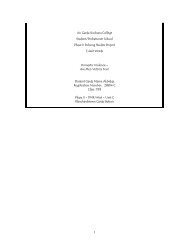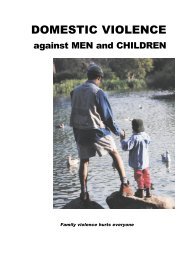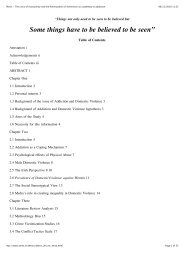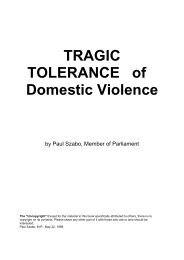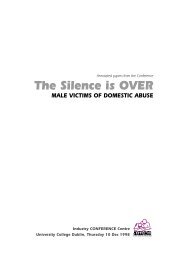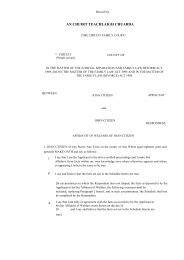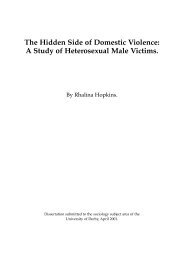MALE VICTIMS OF DOMESTIC VIOLENCE Informing Social ... - Amen
MALE VICTIMS OF DOMESTIC VIOLENCE Informing Social ... - Amen
MALE VICTIMS OF DOMESTIC VIOLENCE Informing Social ... - Amen
You also want an ePaper? Increase the reach of your titles
YUMPU automatically turns print PDFs into web optimized ePapers that Google loves.
An analysis of the literature revealed the following. Swindells (1999) among others has<br />
pointed out a puzzling fact of Irish law. If a person is violent towards another person<br />
outside of the ‘family unit’ it is considered a criminal offence, but if the same act is<br />
carried out against a family member it is portrayed as being acceptable by law. Another<br />
interesting twist in Irish law stems from the ‘gender neutral’ Domestic Violence Act,<br />
1996. As highlighted by Fahey and Lyons (1995), Cook (1997), and McKeown and<br />
Kidd (2003) male victims of domestic violence experience a high degree of hardship in<br />
a justice system that only gives lip service to a gender neutral process provided by<br />
legislation. This view has been solidified by research carried out by Woods and<br />
Corrigan (1998), the research provides comments from practicing Irish barristers that<br />
suggest that male victims of domestic violence require a higher standard of proof.<br />
<strong>Amen</strong> offers support and assistance in legal matters but do recommend that the men<br />
receive legal advice from a family law solicitor.<br />
Findings from the focus group revealed the following, that it is very hard for a male<br />
victim of domestic violence to trust solicitors. The group felt that the law could be very<br />
easily twisted to suit the needs of the abuser in relation to protection orders, safety<br />
orders and barring orders, only sixty percent of the group knew about orders. The<br />
experience expressed by the focus group was that solicitors used them like puppets on<br />
strings and did not provide them with vital information that would have helped them in<br />
their cases. In cases where the father is seeking custody of their children, solicitors<br />
normally advised them not to use the children to give evidence. The group agreed that<br />
in the cases where the children did give evidence of the abuse against the father, the<br />
men gained custody of their children.<br />
An analysis of the social work interviews revealed the following. The medical social<br />
worker finds the law as being gender neutral only in theory, i.e. ‘Domestic Violence Act<br />
1996’. In practice she found the law to be very bias towards male victims of domestic<br />
violence and from her experience men are not always believed or even heard. When a<br />
male victim looks for a solicitor they find it extremely difficult to find a solicitor that<br />
shows them respect. The social worker in child protection felt that she could not really<br />
give a sufficient answer to this section, but though that the law is not gender neutral<br />
when it comes to male victims and that it is very difficult for a man to access orders, i.e.<br />
safety, barring, interim barring, and protection orders. The community social worker<br />
38



